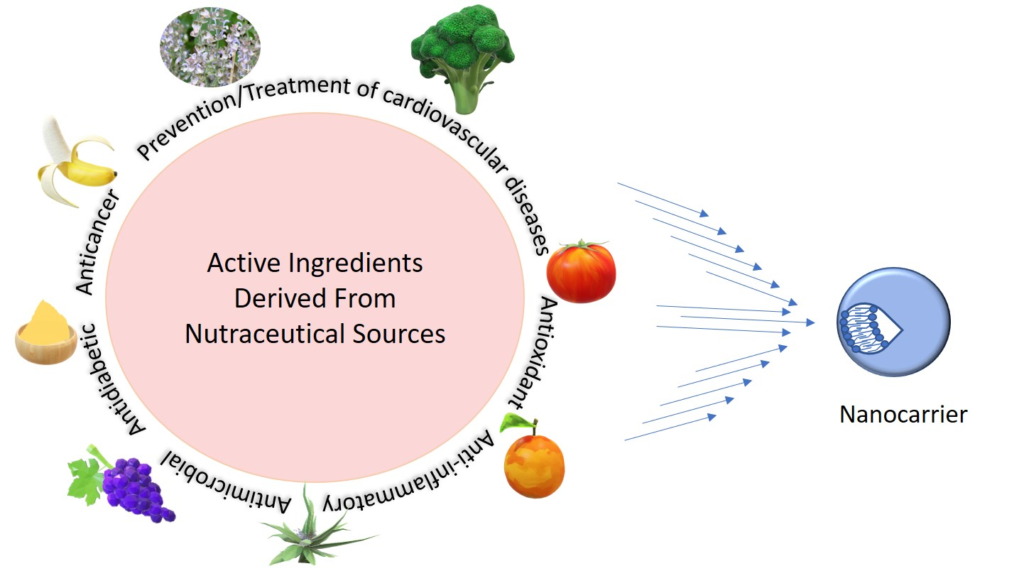Advanced research in nanotechnology Cutting-edge developments in nanoscale materials Innovations in nanotech applications Insights into nanotechnology trends Comprehensive studies on nanomaterials Exploration of nanotech’s impact on various industries Collaboration opportunities in nanotechnology Resources for nanotech researchers and professionals Updates on nanotechnology conferences and events Educational materials on nanoscale science and engineering

ABOUT NANOTECHNOLOGY
Nanotechnology research encompasses a broad spectrum of scientific inquiry focused on the manipulation and application of materials at the nanoscale, typically defined as dimensions ranging from 1 to 100 nanometers. This field integrates principles from various disciplines, including physics, chemistry, biology, and engineering, to explore the unique properties and behaviors of materials at such small scales. Researchers in this domain are investigating innovative applications that could revolutionize industries such as medicine, electronics, energy, and environmental science, by leveraging the enhanced characteristics that materials exhibit when engineered at the nanoscale. The significance of nanotechnology research lies in its potential to create groundbreaking solutions to some of the world’s most pressing challenges. For instance, in the medical field, nanotechnology is being utilized to develop targeted drug delivery systems that can improve the efficacy of treatments while minimizing side effects. Additionally, advancements in nanomaterials are paving the way for the creation of more efficient solar cells, stronger and lighter materials for construction, and novel methods for water purification. As researchers continue to uncover the possibilities within this field, the implications for technological advancement and societal benefit are profound. Moreover, the interdisciplinary nature of nanotechnology research fosters collaboration among scientists and engineers, leading to a more comprehensive understanding of how nanoscale phenomena can be harnessed for practical applications. Institutions and laboratories around the globe are investing in this area, recognizing its potential to drive innovation and economic growth. As the field evolves, ethical considerations and regulatory frameworks are also being developed to ensure that the benefits of nanotechnology are realized responsibly and sustainably, ultimately contributing to a better quality of life and a healthier planet.
Nanotechresearch Uses
Nanotechnology research encompasses a wide array of applications that leverage the unique properties of materials at the nanoscale. This field has made significant strides in various sectors, including medicine, electronics, energy, and environmental science. In medicine, for instance, nanotechnology is being utilized to develop targeted drug delivery systems that can improve the efficacy of treatments while minimizing side effects. By engineering nanoparticles that can specifically target diseased cells, researchers are enhancing the precision of therapies for conditions such as cancer. In the realm of electronics, nanotechnology is revolutionizing the way devices are designed and manufactured. The miniaturization of components at the nanoscale allows for the creation of faster, more efficient, and more powerful electronic devices. This includes advancements in semiconductors, where nanoscale materials can lead to improved performance and reduced energy consumption. Additionally, nanotechnology is paving the way for the development of flexible electronics, which can be integrated into a variety of surfaces and applications, from wearable technology to smart textiles. Environmental applications of nanotechnology are also gaining traction, particularly in the areas of pollution control and resource management. Nanomaterials are being explored for their ability to filter contaminants from water and air, providing innovative solutions to pressing environmental challenges. Furthermore, nanotechnology is contributing to the development of more efficient energy storage systems, such as batteries and supercapacitors, which are essential for the advancement of renewable energy technologies. Overall, the diverse uses of nanotechnology research highlight its potential to drive significant advancements across multiple fields, ultimately contributing to improved quality of life and sustainability.
Nanotechnology approaches for medical and nutrition research
Nanotechnology has emerged as a transformative field in both medical and nutritional research, offering innovative solutions that enhance our understanding and treatment of various health conditions. By manipulating materials at the nanoscale, researchers can develop targeted drug delivery systems that improve the efficacy of medications while minimizing side effects. This precision allows for the design of nanoparticles that can specifically target diseased cells, such as cancerous tumors, thereby revolutionizing therapeutic strategies and paving the way for more personalized medicine. In the realm of nutrition, nanotechnology plays a crucial role in the development of functional foods and dietary supplements. By utilizing nanoscale ingredients, scientists can enhance the bioavailability of essential nutrients, ensuring that the body absorbs them more effectively. This advancement not only improves the nutritional value of food products but also opens up new avenues for fortifying foods with vitamins and minerals that can address specific dietary deficiencies in populations at risk. The ability to engineer food at the nanoscale also allows for the creation of novel food textures and flavors, enhancing consumer acceptance and satisfaction. Furthermore, the integration of nanotechnology in medical diagnostics is proving to be a game-changer. Nanosensors and imaging agents can detect diseases at much earlier stages than traditional methods, leading to timely interventions and better health outcomes. These advancements are particularly significant in the fields of cancer detection and cardiovascular health, where early diagnosis is critical. As research continues to evolve, the potential applications of nanotechnology in both medical and nutritional fields are vast, promising to improve health and well-being on a global scale.
